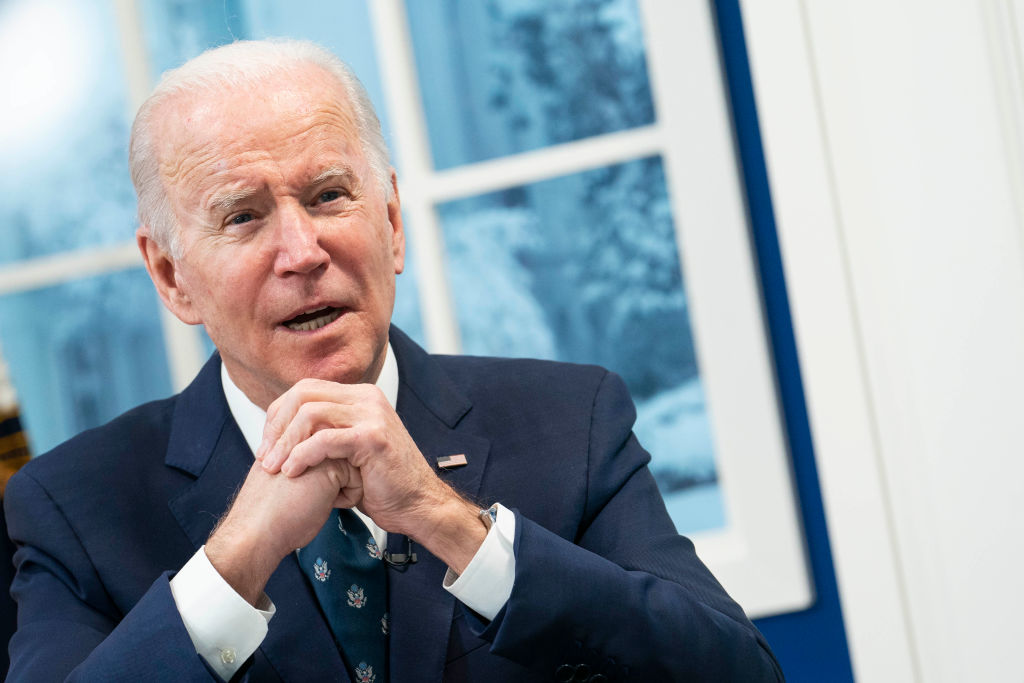Biden’s inflation nothingburger
Joe Biden seems to have decided who is to blame for inflation: big business. After months of mixed messaging and empty spin on one of American voters’ top concerns, the administration has settled on its pre-existing commitment to antitrust action as the best medicine for rising prices.
In its latest antitrust move, the White House yesterday unveiled a package of measures designed to target market concentration in the meat processing industry. Biden announced that he would be sending $1 billion to independent meat processors and enforcing stricter rules for “Made in America” labeling. Other measures include a streamlined process to report anti-competitive behavior and greater transparency in the cattle market.
The stated aim here is to bring down grocery bills by cutting the market share of the biggest players. (Biden recounted a conversation between his wife and sister-in-law about the price of hamburger meat over the weekend.) But as with the administration’s blithe assertion that Build Back Better, a multi-trillion-dollar spending package, was actually the perfect solution to the inflation problem, the antitrust push looks less like a policy designed for the present moment and more like a progressive priority dressed up as urgent anti-inflation action.
Larry Summers, everyone favorite neoliberal thorn in the administration’s side, recently characterized Biden’s antitrust inflation measures as “anti-science” (a grave insult in Democratic circles in the pandemic era). “There are many areas like transitory inflation where serious economists differ. Antitrust as an anti-inflation strategy is not one of them,” he wrote, adding that the “hipster Brandeisian antitrust, with which the Admin and its appointees flirt, is more likely to raise than lower prices.”
Now, Summers isn’t exactly shy when it comes to criticizing Biden’s economic track record. But he’s surely right. The antitrust push is entirely at odds with the complaints of businesses: labor and energy costs, coronavirus uncertainty and disruptions, to name just a few of them. Some of Biden’s antitrust steps might be good ideas on their own terms. Yet they are undermined by the administration’s cynical packaging. It is far from clear how sending federal funds to small-scale meat producers and setting strict labeling rules will lower prices. A boosterish interpretation of the Biden antitrust push would say that the measures aren’t just about inflation. An honest one would say they have very little to do with it. (I’m old enough to remember when the antitrust activists now complaining about big business pushing up prices were worried about predatory pricing.)
The Biden White House’s economic argument sounds an awful lot like “we will keep spending until the prices come down.” If that is the rhetorical cover with which they think they can smuggle progressive priorities through as inflation-busting measures, I doubt many voters will find it especially persuasive. More important than those electoral considerations is the basic question of good-faith government. Americans deserve better than an administration that never changes course in light of bad economic news and for which every development can only ever be justification for their pre-existing agenda.
Snowed in on the Hill
When Senate Democrats meet today, they will kick off the new year with a discussion of the state of whatever bare-bones version of Build Back Better might be able to get 50 votes and a renewed voting rights push. Chuck Schumer has reportedly returned to the Capitol with renewed determination to dial up the pressure on Joe Manchin and Kyrsten Sinema when it comes to exemptions and carve-outs to the filibuster.
In other words, the 2022 legislative merry-go-round already has a very 2021 feel to it. Spending, voting rights, filibuster. Spending voting rights, filibuster. On repeat. At least until November. What is Biden supposed to do now, asks my colleague Matt Purple in an icy piece for the site. A snow-bound Washington may be pretty. A frozen agenda on the Hill, however, is when things get ugly.
NFTs get political
In a blow to my plan to never bother to properly understand the weird world of Non Fungible Tokens, politicians are now using them to fund their campaigns. Yes, that hellish mix of art-world superficiality and bitcoin-bro evangelism is heading to Washington. As Roll Call reports, candidates on both sides of the aisle are swapping tokens for campaign contributions. Arizona Republican Senate candidate Blake Masters has offered supporters 99 tokens priced at $5,800. Owners, he promised, would get to hang out with Peter Thiel (his former boss, Zero to One co-author and biggest campaign donor). Shrini Kurani, a California Democrat, is selling 2,022 tokens (get it?).
What you should be reading today
Matt Purple: Biden’s coming year of paralysis
Teresa Mull: Country music drowns out cancel culture
Amber Athey: AOC and the self-absorbed left
Alex Isenstadt, Politico: Larry Hogan goes on tour to boost Republicans on Trump’s enemies list
Marty Makary, Common Sense with Bari Weiss: University Covid policies defy science and reason
Andrew Stiles, Washington Free Beacon: Here comes the Stacey Abrams rebrand
Poll watch
President Biden Job Approval
Approve: 42.9 percent
Disapprove: 53.5 percent
Net approval: -10.6 (RCP Average)
Proportion who think America is “in crisis and at risk of failing”
Democrats: 68 percent
Republicans: 78 percent
Independents: 67 percent
Total: 70 percent (Ipsos)


















